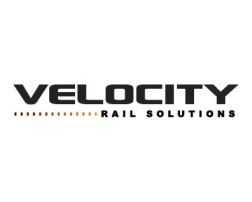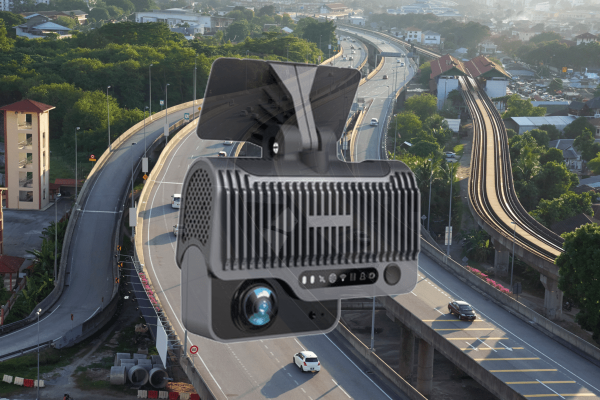AI And Trucking: Integrating The Two Is Critical During A Pandemic
June 1, 2020
Technology is advancing at impressive rates. When speaking about telematics, artificial intelligence has played a critical role in the innovation and development of many solutions for vehicle-based businesses. If you have yet to implement telematics initiatives using AI advancements, it is time to do it as there are 5 noticeable benefits that arise.
Artificial Intelligence In Telematics
Artificial intelligence is a continuously evolving technology that has a main focus of improving efficiency and automating tasks. AI is designed to not only conduct a variety of tasks, but it is designed to use machine learning to learn how to complete more tasks. Overtime, when more data from multiple sources are integrated into the program, the program is able to advance.
But what does AI do in relation to telematics technology? It is the backbone of many solutions as the applications focus on streamlining and automating various tasks to optimize efforts. When speaking about fleet-based telematics, this often includes reliable reporting, optimized route creation, improved training and more. These benefits are all critical now as fleets must do everything they can to not only stay ahead of the competition, but retain and gain customers.
How AI Will Help Trucking Businesses During The COVID-19 Pandemic
Boosting Customer Experience
When deployed properly, artificial intelligence in telematics solutions can make customer interactions more meaningful. Successfully completing this can allow for happier customers and thus, result in a lower customer turnover. To see this benefit, AI must be implemented in customer response tools (such as chatbots). When artificial intelligence is used to help reply to customer questions in a matter of seconds, it allows the customer to feel heard and cared for.
AI is able to do this as the program will read the question asked by the customer and instantly review or search an internal database to source an appropriate answer for the customer. This database is either pre-created by the business with frequently asked questions and general information, or is continuously added to by the AI program when questions require human intervention.
Enhanced Logistics And Numerical Data Collection
As mentioned previously, artificial intelligence continuously collects new information to better improve its accuracy with task completion. Meaning, it collects more data than any human could do on their own. By doing this, real-time information can be relayed to users and specific actions can take place. When used in a vehicle telematics solution, real-time information about the vehicle can be collected with little effort. An example of this is in dispatching solutions like ZenduWork. ZenduWork is an AI-driven, hassle-free dispatching tool that delivery-based businesses are using to improve their dispatching. The AI portion of the solution collects data on the location of each delivery vehicle as well as the destination required for new orders. It then determines which driver has the most efficient route to complete the order. Additionally, when it is determining who the order will be dispatched to, it is able to calculate an accurate ETA of when the order completion will happen by analyzing not only the current route, but taking into consideration historical route completion data. Allowing for customers to have proper updates about arrival time frames or potential delays.
Predicting Maintenance
Maintaining one vehicle is easy as vehicle owners typically know how and where it was driven. The task of maintaining vehicles becomes drastically harder when there are multiple vehicles to monitor and various drivers – a reality for many large fleet-based businesses. AI is useful in cases like this where there are various vehicles and various drivers because the artificial intelligence software allows for predictive maintenance scheduling to automatically happen. Ensuring that vehicles are well taken care of and are always in top condition. Doing this will reduce the likelihood of unexpected breakdowns that result in halted work and costly repairs.
Conducting predictive maintenance with AI technology requires unique programs that are designed to continuously monitor vehicle use (speed or kilometres driven) and align the information with standard maintenance guidelines. For example, if an oil change is required every 8,000 km to keep a vehicle in peak condition, the AI program would monitor the kilometres driven by using an engine monitoring and GPS tracking system. When the vehicle use is nearing a pre-set limit (in this case nearing 8,000 km) either a notification to the fleet manager will be sent to notify them of an upcoming maintenance check specific to the oil, or automatically schedule (like in the case of ZenduMaintenance) an oil check to happen when the driver completes their route. When fleets begin to conduct preventive maintenance by using AI solutions like ZenduMaintenance, it can reduce sudden breakdowns and costly repairs to allow businesses to see an ROI in a matter of weeks. 
Tech-Focused Safety Initiatives
AI has also been utilized as a tool to improve safety. For fleets or vehicle-based businesses, this is one benefit that can’t be overlooked as safety should always be a top priority. The way that artificial intelligence aids this, is that the technology is being used within camera recording tools to automatically monitor activities while on the road. For example, dash camera solutions like the Z6 smart dash camera uses AI technology to monitor how the driver is behaving. Specifically, it uses facial recognition software to alert fleet managers when a driver appears distracted while the vehicle is in motion. Such systems can act as a standalone tool (one dash camera recording the driver), or multiple cameras can be installed to allow for 360 visibility of vehicles. The ZenduCAM multi-camera solution does this and is recognized for its ability to monitor not only the events in front of the vehicle, but beside and behind the vehicle as well. Below we discuss what each camera can detect when AI technology is used:
- Driver-facing cameras can detect: distracted driving or phone use
- Front-facing cameras can detect: tailgating, quick speeds or other events that explain certain dangerous driving behaviours
- Side-facing cameras can detect: lane swerving via lane keeping assist and other vehicle activity
- Rear-facing cameras can detect: obstacles while backing up and other vehicle activity in blindspots such as rear tailgating
Improved Productivity Increasing Revenue
When artificial intelligence is implemented, businesses can also expect to notice improved productivity to result in increased revenue. For vehicle-based businesses productivity is increased in two ways. The first is specific to driver productivity. With AI technology used within telematics solutions, dispatching efforts can be optimized so each vehicle and driver can complete the most deliveries within the shortest route or time (as previously mentioned). This ensures that drivers are in fact completing orders quickly, allowing for more revenue to come into the business on a more constant basis.
The second way that productivity is increased to boost revenue is through the administrative efforts associated with dispatching, billing and more. When telematics solutions that have AI integrations are used, time-consuming administrative tasks can be completed automatically and with more accuracy. For example, automatic and digital form submissions that sync dispatching with invoice and billing software can be leveraged to not only send out invoices quicker but with ease and more accuracy. Reducing the human error that can happen when paperwork goes missing as well as the human error that can happen when physical documents are not filled in correctly.
Artificial intelligence is something that can’t be overlooked by fleet-based businesses. No matter how small or large a fleet is, AI-integrated telematics solutions must be leveraged to ensure that businesses remain profitable while retaining and gaining new customers. Interested to learn more about how ZenduIT has various solutions that utilize AI technology? Contact us today!












